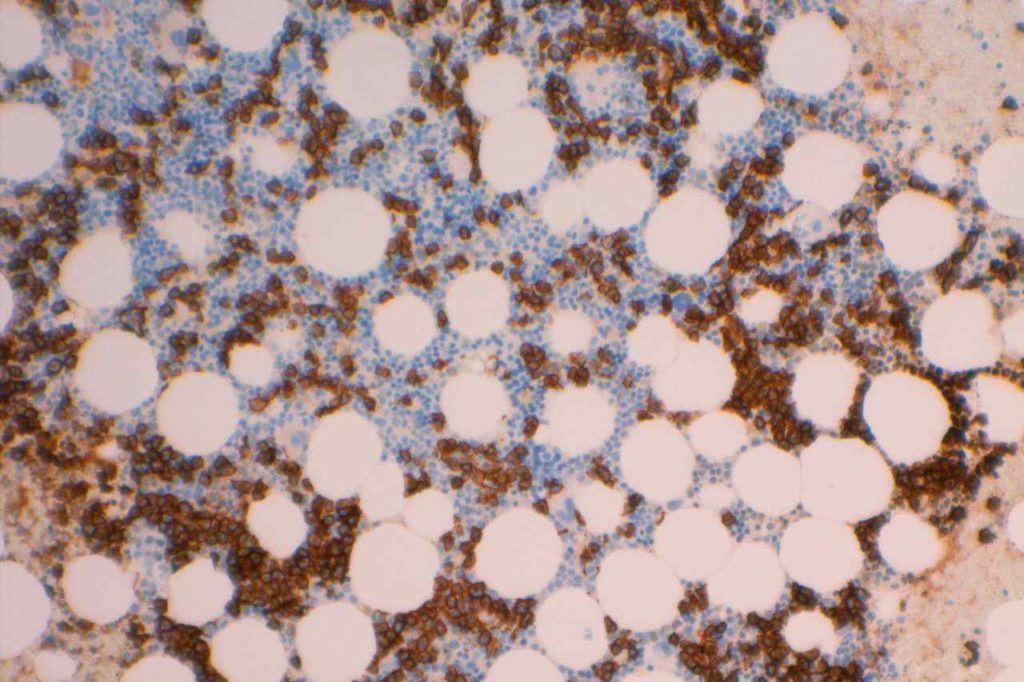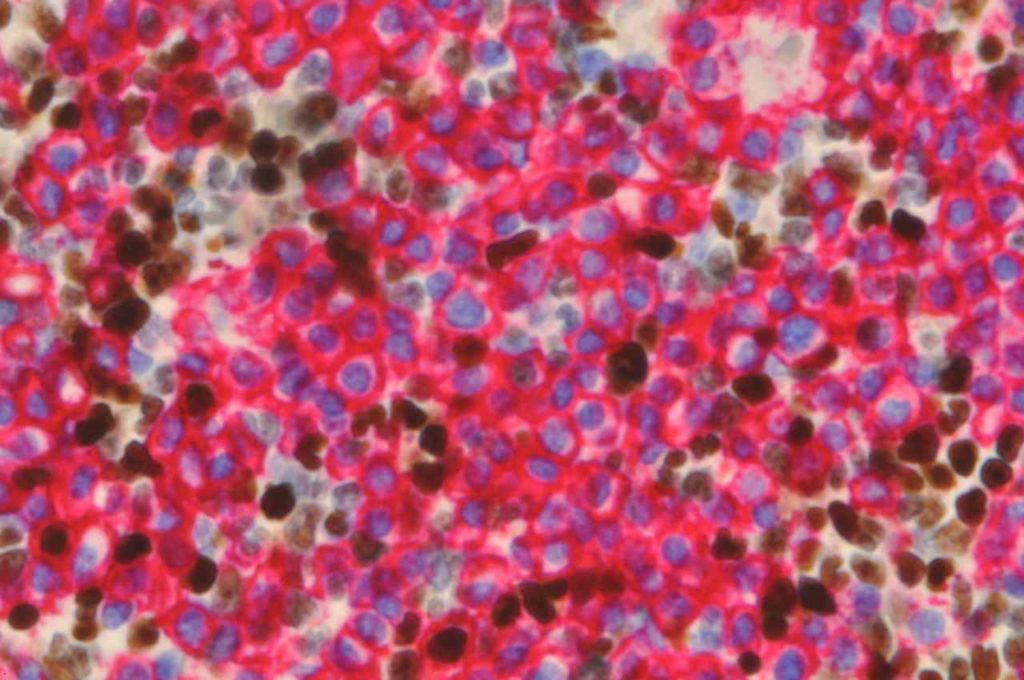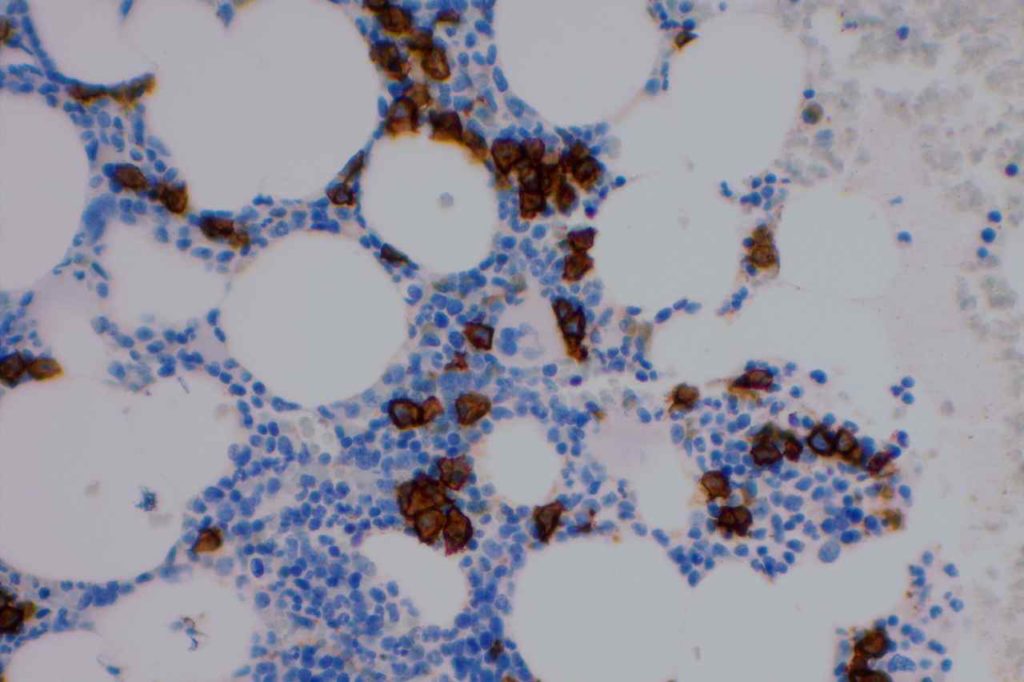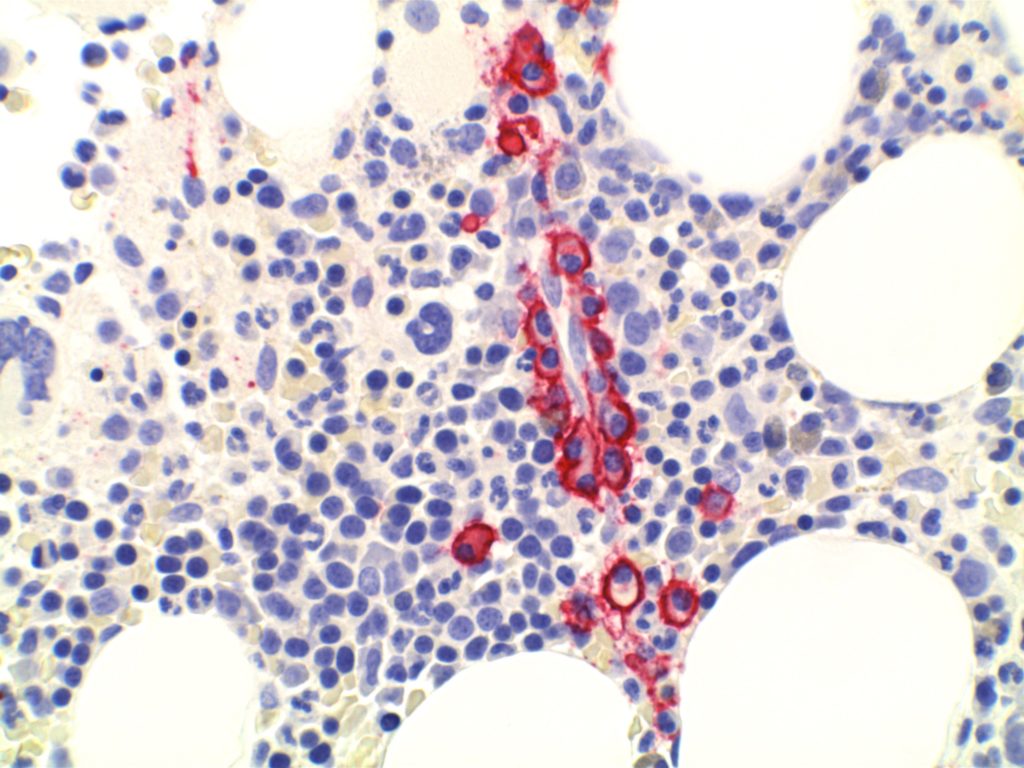CD138 (Syndecan-1) is expressed in mesenchymal and epithelial cells. In the bone marrow hematopoietic cells, CD138 is a specific (and sensitive) marker for plasma cells (e.g. multiple myeloma). The biggest pitfall in utilization of CD138 is plasmacytoid neoplasms showing expression of CD138 without consideration of a non-hematopoietic neoplasm expressing CD138!! Always consider a metastatic process in the bone marrow, and utilize additional markers (AE1/AE3, kappa/lambda) to exclude/prove plasma cells origin.
The majority of epithelial neoplasms express CD138, and even a significant number of osteosarcomas, osteoid osteomas, and osteoblastomas react with CD138. Recent literature suggests CD138 to be an adverse prognostic indicator in advanced and nonluminal subtype breast carcinomas.
Photomicrographs




References
Bone Marrow IHC. Torlakovic, EE, et. al. American Society for Clinical Pathology Pathology Press © 2009. pp. 134.
Nunez, A. L., Siegal, G. P., Reddy, V. V. B., & Wei, S. (2012). CD138 (syndecan-1) expression in bone-forming tumors. American Journal of Clinical Pathology, 137(3), 423–428. doi:10.1309/AJCP6V4YPFBOCYXG
Nguyen, T. L., Grizzle, W. E., Zhang, K., Hameed, O., Siegal, G. P., & Wei, S. (2013). Syndecan-1 overexpression is associated with nonluminal subtypes and poor prognosis in advanced breast cancer. American Journal of Clinical Pathology, 140(4), 468–474. doi:10.1309/AJCPZ1D8CALHDXCJ
Joshi, R., Horncastle, D., Elderfield, K., Lampert, I., Rahemtulla, A., & Naresh, K. N. (2008). Bone marrow trephine combined with immunohistochemistry is superior to bone marrow aspirate in follow-up of myeloma patients. Journal of Clinical Pathology, 61(2), 213–216. doi:10.1136/jcp.2007.049130
